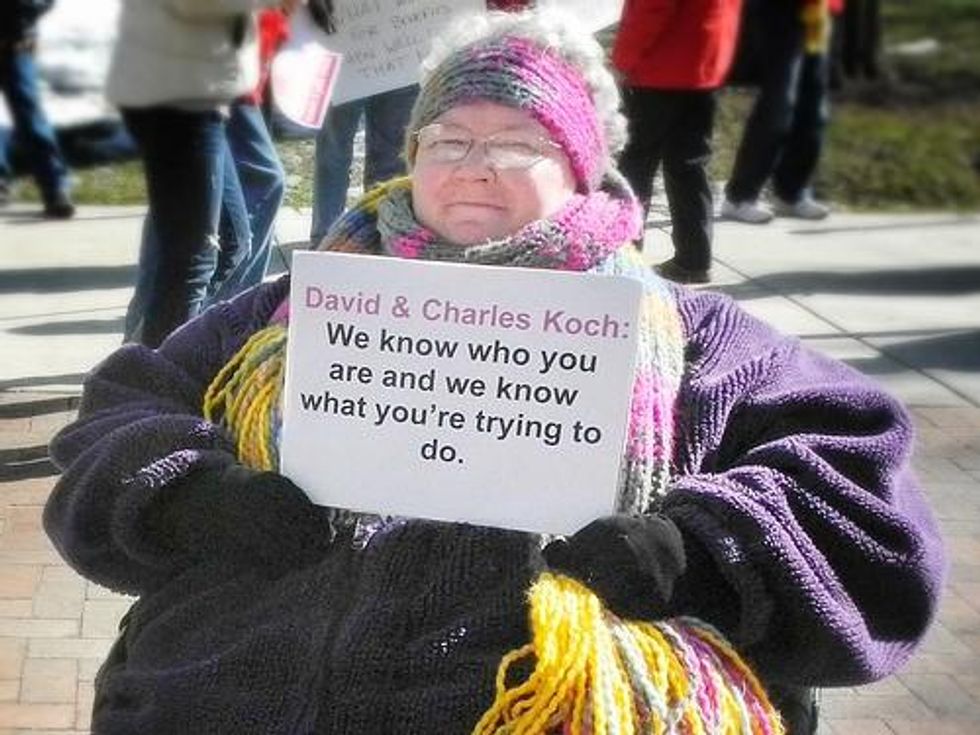Over the weekend, The New York Timespublished its investigation of how Goldman Sachs has made a tidy profit by buying up vast amounts of aluminum and slowing the delivery through the ownership of vast warehouses. Many investment banks purchase physical assets, like pipelines or storage facilities, to gain better market intelligence for speculative trading. The Goldman Sachs strategy, detailed first by Bloomberg News and by Reuters in 2011, has
boosted the cost of aluminum, hitting both manufacturers and consumers with higher prices.
Worth noting: Koch Industries, a company often inaccurately described as simply an oil or manufacturing concern, is highly active in the commodity speculation business akin to the big hedge funds and banks like Goldman Sachs.
As Fortune magazine reported, when oil prices dropped from a record high in July of 2008 to record lows in December of that year, Koch bought up the cheap oil to take it off of the market. Koch leased a number of giant oil tankers, including the 2-million-barrel-capacity Dubai Titan, to store the oil offshore. The decrease in supply increased the price for consumers that year, while Koch took advantage of selling the oil off later at higher prices.
Koch Industries' executive David Chang later boasted, "The drop in crude oil prices from more than US$145 per barrel in July 2008 to less than US$35 per barrel in December 2008 has presented opportunities for companies such as ours. In the physical business, purchases of crude oil from producers and storing offshore in tankers allow us to benefit from the contango market where crude prices are higher for future delivery than for prompt delivery."
The company took advantage when the prices were low, but they also gained when the prices were high. A leaked document I obtained shows Koch among the largest traders (including Goldman Sachs and Morgan Stanley) speculating on the price of oil in the summer of 2008.
A presentation I also obtained, given to an industry association for oil speculators, describes Koch as the "world's top five crude oil traders and actively trades about fifty types of crude oil around the world." The presentation notes Koch "has trading operations in London, Geneva, Singapore, Houston, New York, Wichita, Rotterdam, and Mumbai." Indeed, Koch Metals Trading Limited (a Koch Industries subsidiary) also trades on the London-based exchange detailed in the Times story from Saturday.
Koch's role in commodity speculation has a long history, from introducing the first oil derivative in 1986 to lobbying lawmakers to remove limits on excessive oil speculation throughout the last two decades. I wrote a report on this subject, which you can find
here.

